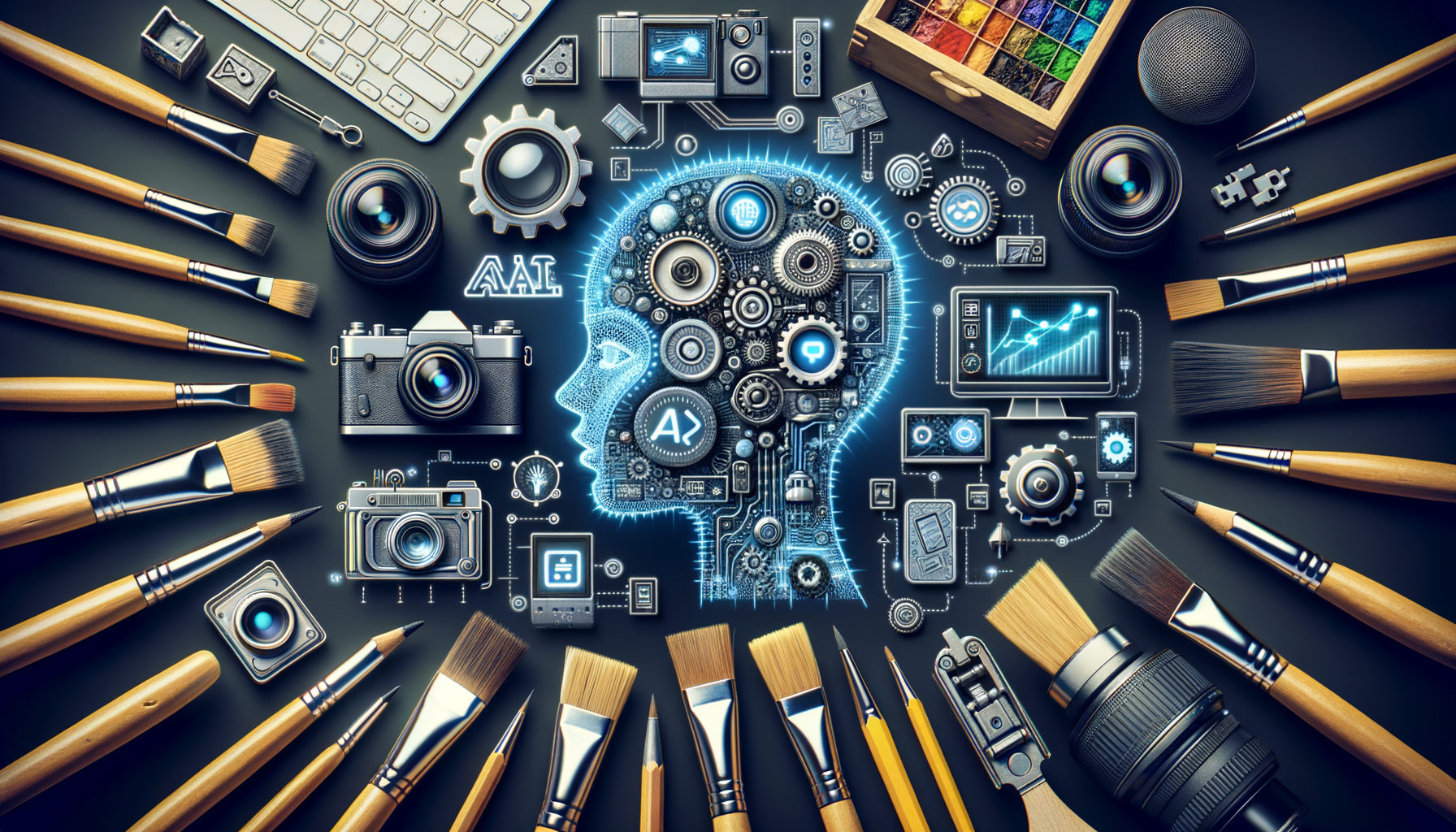The Rise of AI Tools in Content Creation
In recent years, Artificial Intelligence (AI) has become a transformative force in various industries, with content creation being one of the most impacted areas. AI tools are now being used to automate and enhance the process of creating content, making it more efficient and effective. These tools can generate written content, design graphics, and even analyze audience engagement, providing a comprehensive suite of solutions for content creators.
One of the top options in AI-powered content creation is the use of natural language processing (NLP) technologies. These technologies enable AI to understand and generate human-like text, which can be used for writing articles, creating social media posts, and even drafting emails. The ability to generate content quickly and accurately allows creators to focus more on strategy and creativity rather than the repetitive tasks of writing.
Moreover, AI tools are not just limited to text. They also include platforms that can create visual content. For instance, AI-driven design tools can help generate stunning graphics and layouts by analyzing current design trends and user preferences. This capability is particularly useful for marketers and designers who need to produce visually appealing content rapidly.
As AI tools continue to evolve, they offer exceptional quality in content creation, enabling individuals and businesses to produce high-quality material with less effort and time. The integration of AI in content creation is not just a trend but a significant shift towards more intelligent and efficient workflows.
AI Tools Transforming the Design Landscape
Design is another field where AI tools are making a substantial impact. These tools are enhancing the creative process by providing designers with new capabilities and efficiencies. AI-driven design tools can analyze vast amounts of data to identify design trends, predict user preferences, and generate design elements that align with brand aesthetics.
Among the best features of AI tools in design is their ability to automate routine tasks. For instance, AI can assist in resizing images, selecting color palettes, and even creating custom illustrations. This automation allows designers to focus on more complex and creative aspects of their work, leading to more innovative and unique designs.
Furthermore, AI tools are also being used to improve user experience (UX) design. By analyzing user data, AI can help designers create interfaces that are intuitive and user-friendly. This data-driven approach ensures that designs are not only aesthetically pleasing but also functional and effective in meeting user needs.
Incorporating AI into the design process results in highly rated outcomes, as it combines the best of human creativity with the analytical power of machines. As AI technology continues to advance, it will undoubtedly play a critical role in shaping the future of design.
AI in Marketing: A Game Changer
Marketing is an area where AI tools are proving to be particularly beneficial. These tools are helping marketers streamline their efforts, target audiences more effectively, and measure the success of campaigns with greater precision. AI can analyze consumer behavior, predict trends, and personalize marketing messages, making campaigns more relevant and effective.
One of the top-rated applications of AI in marketing is in customer segmentation. AI tools can process large datasets to identify distinct customer groups based on their behavior, preferences, and demographics. This segmentation allows marketers to tailor their messages and offers to specific audiences, increasing the likelihood of engagement and conversion.
Additionally, AI-driven analytics tools provide marketers with valuable insights into campaign performance. These tools can track metrics such as click-through rates, conversion rates, and customer engagement, enabling marketers to make data-driven decisions and optimize their strategies.
The use of AI in marketing is not just about efficiency; it’s about creating more personalized and impactful interactions with customers. As AI technology continues to develop, it will offer even more opportunities for marketers to connect with their audiences in meaningful ways.
Challenges and Considerations in Using AI Tools
Despite the numerous benefits of AI tools, there are also challenges and considerations that users must be aware of. One of the primary concerns is the ethical use of AI, particularly in areas such as data privacy and security. As AI tools often rely on large datasets, it is crucial to ensure that data is collected and used responsibly.
Another challenge is the potential for AI to perpetuate biases. Since AI systems learn from existing data, they can inadvertently reinforce existing stereotypes or biases present in the data. It is essential for developers and users to be vigilant in identifying and mitigating these biases to ensure fair and unbiased outcomes.
Moreover, while AI tools offer outstanding capabilities, they are not infallible. There is always a possibility of errors or inaccuracies, especially in complex tasks. Therefore, human oversight remains a critical component in the use of AI tools to ensure quality and accuracy.
In conclusion, while AI tools present exciting opportunities, it is important to approach their use with caution and responsibility. By addressing these challenges, users can harness the full potential of AI while minimizing risks.
Future Prospects of AI Tools
The future of AI tools is promising, with continuous advancements expected to further enhance their capabilities and applications. As AI technology evolves, it will likely become even more integrated into everyday workflows, offering new possibilities for innovation and efficiency.
One of the key areas of development is the improvement of AI’s ability to understand and generate human-like content. This advancement will enable AI tools to produce even more sophisticated and nuanced content, bridging the gap between machine-generated and human-created material.
Additionally, AI tools are expected to become more accessible and user-friendly, allowing individuals and small businesses to leverage their benefits without needing extensive technical expertise. This democratization of AI technology will enable more people to participate in and benefit from the digital economy.
In summary, the future of AI tools holds immense potential for transforming various industries. As these tools continue to advance, they will open up new opportunities for creativity, productivity, and innovation, shaping the way we work and interact with technology.




Leave a Reply